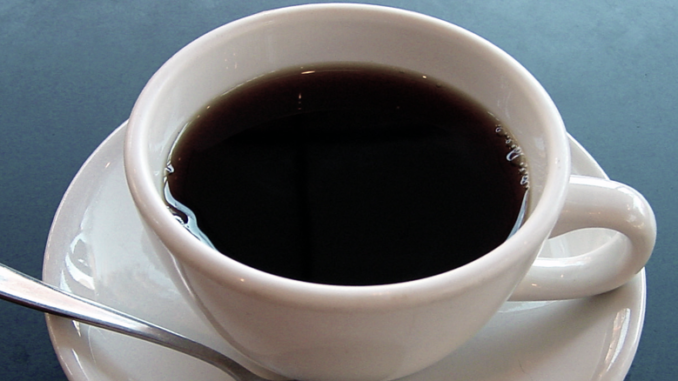
Coffee is good for you, regardless of what you may have heard from your cousin’s boyfriend’s great aunt from Stanton. The latest scientific consensus on caffeinated coffee holds that it can reduce the risks of heart disease, type 2 diabetes, cancer, and Parkinson’s, while simultaneously increasing your attention span, endurance, and life span. [The only known caveat is that babies, particularly in the womb, should not be exposed to caffeine as they don’t yet possess the enzyme required to metabolize it. So pregnant or nursing women should avoid caffeine, as it’s unclear what effect it has on the child.]
While coffee has, in the past, been widely vilified as an unhealthy vice, today most everything about caffeine and coffee looks very good indeed. A study titled Caffeine exposure induces browning features in adipose tissue in vitro and in vivo, published June 24, 2019 in Scientific Reports, conducted by researchers at the University of Nottingham, UK, and the University of California, Los Angeles, adds another load of good news to coffee’s balance sheet.
Caffeine is a catalyst that prompts your body to burn unwanted fat. Here’s how it works. We’re all born with two types of fat. White adipose tissue (WAT) is the undesirable fat that makes us look… fat. Brown adipose tissue (BAT) is the good guy in this biological drama that can help us trim back excess WAT. As we grow older the amount of BAT we have decreases, which is unfortunate because BAT is critical for bone health and density, building and maintaining muscle mass, dealing with blood sugar levels, improving longevity, and most happily, spurring on the burning of WAT.
Drinking coffee (but not water) stimulated the temperature of the supraclavicular region, which co-locates to the main region of BAT in adult humans, and is indicative of thermogenesis.
Velickovic, K., Wayne, D., Leija, H.A.L. et al.
Translation: Caffeine lights a fire under BAT, and BAT helps your body convert WAT into usable energy. Burn baby, burn.
Now, there are other proven ways to convert WAT into energy that do not involve caffeine. You can discipline yourself to exercise every day, or you can expose yourself to cold temperatures, or you can execise outdoors every day in freezing weather. Sounds good, right? Yeah.
Just one more thing you should consider and take note of, should you decide to embark on a caffeinated coffee
weight-loss program: it makes no sense to add fattening ingredients (cream, sugar, syrup, and “flavorings”) to your coffee if your goal is shedding pounds. File that under counterproductive.
Question(s) of the Night: How do you like your coffee? Your favorite roast? Your favorite type of coffee (i.e., Espresso, Latte, truckstop drip)? Your favorite variety/cultivar of coffee bean?
